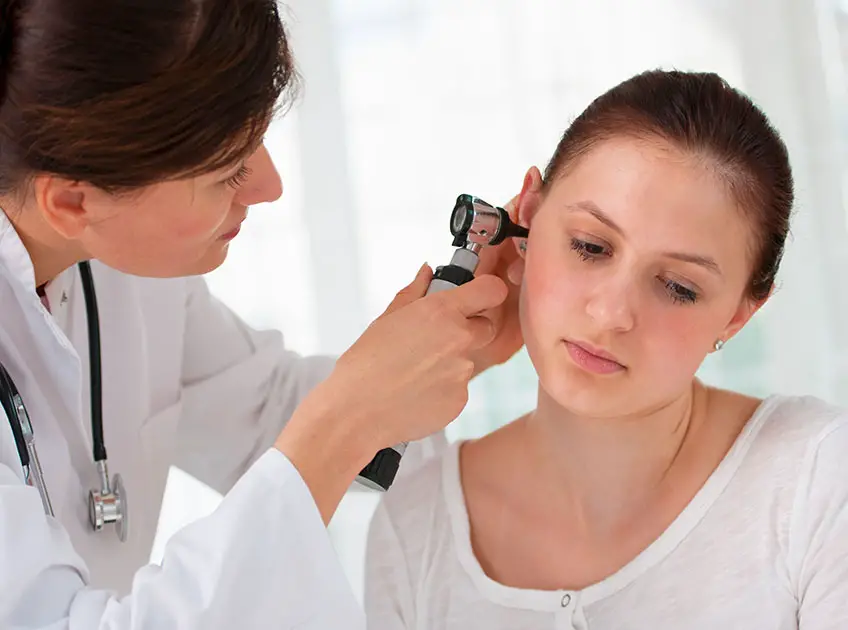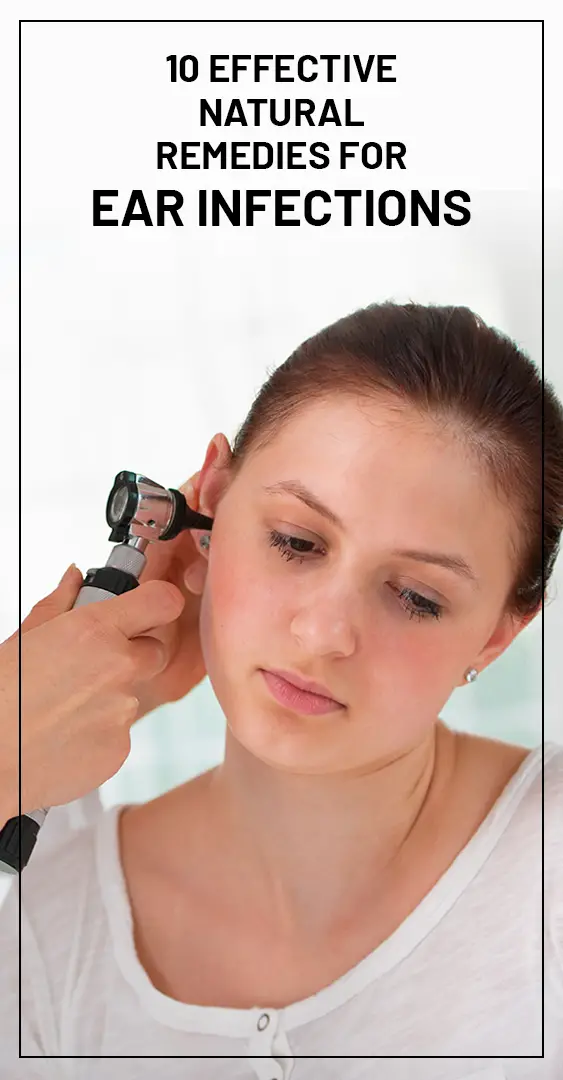
Important: This article is for informational purposes only. Please read our full disclaimer for more details.
Ear infections are a common problem, especially in children. They can be very painful and cause a lot of discomfort. Fortunately, there are many home remedies that can help to relieve the pain and discomfort associated with ear infections. Ear infection must be treated with care and be sure to take quick action on the issue as the infection can spread or get worse. Here are some of the most effective home remedies for ear infection.
1. Garlic oil
Garlic oil is a great home remedy for ear infection. It has antibacterial and antifungal properties that can help to fight the infection.
Study on ‘Antimicrobial activity of garlic derivatives for external ear canal and chronic middle ear infections’ has revealed that allicin and s-allyl cysteine showed antimicrobial activity against the tested microorganisms, even at low concentrations. These two derivatives may be used to treat infections (1).
Simply heat up some garlic oil and apply it to a clean cotton swab. Gently insert the swab into the affected ear and leave it in for 10-20 minutes. Repeat this process 2-3 times a day until the infection clears up. Or you can pour some garlic oil directly into our ear for treating ear canal infections.
Potential Risks
Since garlic oil is intense, it is advised to perform a patch test to ensure it doesn’t cause skin irritation or burning. Patch test is highly recommended for people with sensitive skin.
Do not use it if you have ruptured ear drum as putting garlic oil may cause pain and leakage of fluid from the ear.
[ Recommended: How to Cure An Ear Infection With Garlic ]
Apple cider vinegar is another effective home remedy for ear infection. It has antibacterial properties that can help to fight the infection. Simply mix equal parts apple cider vinegar and rubbing alcohol. Add this mixture into your ear canal using a clean dropper. Clean it with a cotton ball after a few minutes.
Potential Risks
Using concentrated apple cider vinegar may lead to burn and skin irritation, especially on the sensitive skin of ear. Therefore, never forget to dilute it before using. If irritation continues, stop using immediately.
3. Hydrogen Peroxide
Hydrogen peroxide is another effective home remedy for ear infection. It has antibacterial properties that can help to fight the infection.
A research on efficacy of ear lavage with 3% hydrogen peroxide solution (oxydol) for refractory aural discharge related to acute infantile otitis media has found to be highly effective and promising (2).
Simply mix equal parts hydrogen peroxide and water. Pour a few drops of this mixture into your ear canal using a clean dropper. Rinse it with some distilled water after a few minutes.
Potential Risks
You may experience bubbling sensation and slight pain in ear. You may also feel dizziness. It is advised to never use more than 10% concentration of hydrogen peroxide as it may cause blistering and burning. Do not use it if you have ruptured eardrum.
[ Recommended: How to Use Olive Oil For Ear Infections ]
4. OTC Pain Medications
There are many over-the-counter pain medications that can help to relieve the pain and discomfort associated with ear infections. These include ibuprofen, acetaminophen, and naproxen. Be sure to follow the instructions on the package carefully. Do not give aspirin to children under the age of 18.
Potential Risks
Overdosing may lead to worsening the condition. So, always use under the prescribed dosage.
5. Warm Compress
Applying a warm compress to the affected ear can help to reduce pain and inflammation. Simply soak a clean cloth in warm water and apply it to the affected ear for 10-15 minutes. Repeat this process several times a day until the pain subsides.
6. Cold Compress
Applying a cold compress to the affected ear can also help to reduce pain and inflammation. Simply soak a clean cloth in cold water and apply it to the affected ear for 10-15 minutes. Repeat this process several times a day until the pain subsides.
[ Recommended: Best Essential Oils for Ear Infection ]
7. Olive oil
Olive oil is another effective home remedy for ear infection. It has antibacterial and antifungal properties that can help to fight the infection. Simply heat up some olive oil and apply it to a clean cotton swab. Gently insert the swab into the affected ear and leave it in for 10-20 minutes. Repeat this process 2-3 times a day until the infection clears up.
Potential Risks
It may cause itching, outer ear infections, dizziness, and skin irritation. Anyone with an allergy to olives or olive oil should not try this remedy. It is also vital to be cautious when using this home remedy with children.
8. Tea Tree oil
Tea tree oil is another effective home remedy for ear infection. It has antibacterial and antifungal properties that can help to fight the infection.
Study has revealed that tea tree oil shows promise as an effective treatment for a number of micro-organisms commonly associated with otitis externa and otitis media (3).
Simply add a few drops of tea tree oil to a clean cotton swab. Gently insert the swab into the affected ear and leave it in for 10-20 minutes. Repeat this process 2-3 times a day until the infection clears up.
Potential Risks
People with sensitive skin may experience skin irritation, allergic skin rash dermatitis), itching, stinging, burning, scaling, redness and dryness.
9. Adjust your Sleeping Position
Sleeping on your side or propped up on pillows can help to drain the fluid from your ear and reduce pain. Avoid sleeping on your stomach, as this can worsen the pain.
10. Get Treated by a Chiropractor
If you suffer from frequent ear infections, you may benefit from treatment by a chiropractor. Chiropractic adjustments can help to improve drainage from the ear and reduce the risk of infection.
Ear Infection can sometimes be very irritating and painful. Use these simple home remedies to get rid of the pain and discomfort. If the pain persists, please consult a doctor. Be cautious while using apple cider vinegar or hydrogen peroxide and do this after consulting a doctor.
Recommended Topics:
- How to Use Tea Tree Oil for Ear Infection?
- Apple Cider Vinegar for Ear Infection: How to Use?
- Can Breast Milk Help an Ear Infection?
















